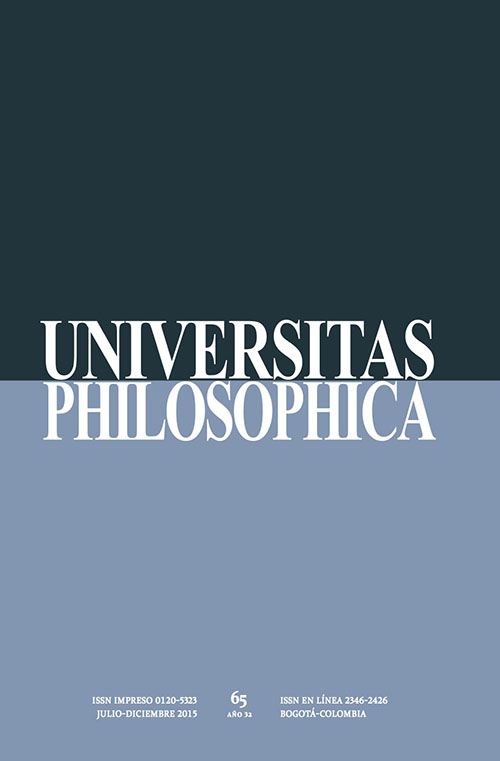Abstract
This article addresses the need to interpret Latin American philosophy from its narrative experience. To do this, we must grasp the reflective style of Latin America as a way of cultural configuration and as a symbol work of its own. In addition, to identify Latin American philosophy as a tactic to respond and resist the strategy of the European hegemonic power is essential. Finally, it is argued it is not possible to think of Latin American identity without practicing a political ethic which transposes the figures of narratives with the figures of history to the justice demand situation in which we find ourselves.
This journal is registered under a Creative Commons Attribution 4.0 International Public License. Thus, this work may be reproduced, distributed, and publicly shared in digital format, as long as the names of the authors and Pontificia Universidad Javeriana are acknowledged. Others are allowed to quote, adapt, transform, auto-archive, republish, and create based on this material, for any purpose (even commercial ones), provided the authorship is duly acknowledged, a link to the original work is provided, and it is specified if changes have been made. Pontificia Universidad Javeriana does not hold the rights of published works and the authors are solely responsible for the contents of their works; they keep the moral, intellectual, privacy, and publicity rights.
Approving the intervention of the work (review, copy-editing, translation, layout) and the following outreach, are granted through an use license and not through an assignment of rights. This means the journal and Pontificia Universidad Javeriana cannot be held responsible for any ethical malpractice by the authors. As a consequence of the protection granted by the use license, the journal is not required to publish recantations or modify information already published, unless the errata stems from the editorial management process. Publishing contents in this journal does not generate royalties for contributors.


